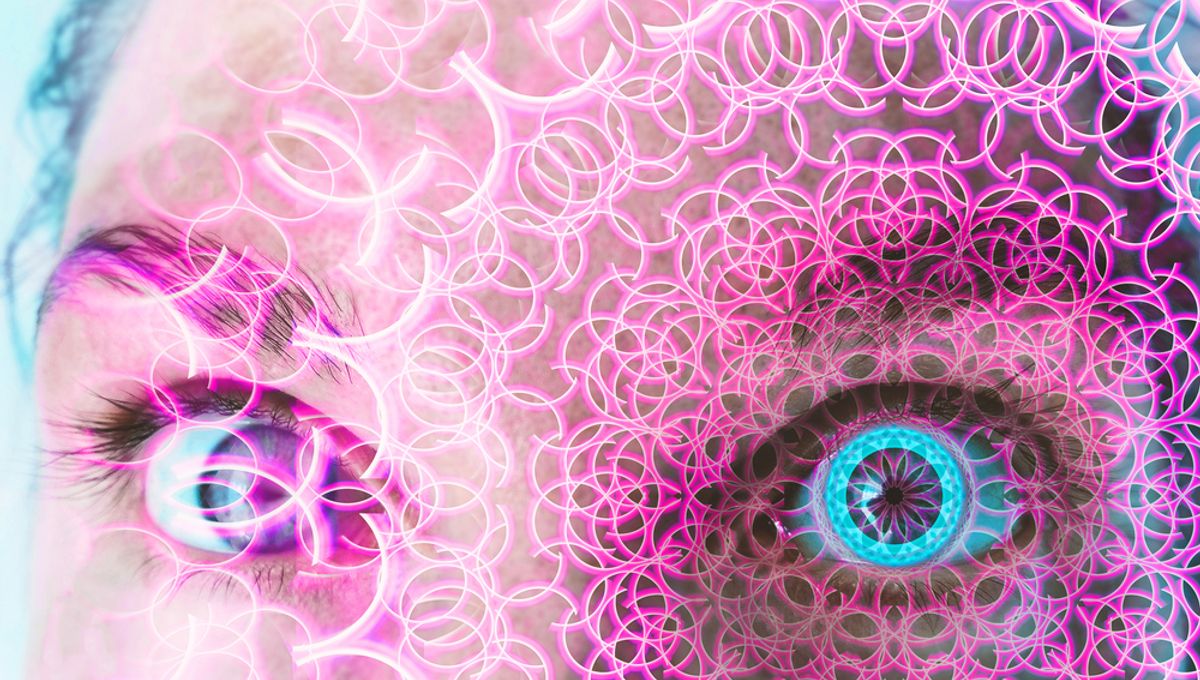
While people tripping on DMT often lose all perception of time, the peak effects of the drug only last for about 10 to 20 minutes before subsiding completely in around half an hour. However, in a yet-to-be-published paper, researchers say they have managed to extend the acute phase of the DMT state to a full 30 minutes, potentially opening up new opportunities for personalized therapy trips or further research into the outer reaches of human consciousness.
For instance, while users regularly report encounters with otherworldly characters – or “entities” – during their DMT-induced visionary voyages, scientists are yet to probe the neural underpinnings of these odd apparitions. According to the study authors, though, prolonged trips “could be useful in neuroimaging studies with purposes related to consciousness research e.g., investigating the neural correlates of ‘entity experiences’ or ‘immersion into alternate realities’.”
While DMT can be smoked or administered intravenously, both of these methods generally give rise to fleeting trips. “DMT’s subjective effects begin within seconds, reaching their peak intensity within two to three minutes and subsiding thereafter, with negligible effects felt after about 30 minutes,” explain the researchers.
To increase the length of the experience, the team intravenously administered a “constant-rate infusion” to 11 volunteers. Doing so allowed them “to keep subjects in steady levels of immersion into the DMT experience over an extended period of 30 minutes.”
The drug’s effects then decreased dramatically as soon as the infusion ended and had worn off entirely by about 20 minutes later.
The primary focus of the study was to determine the safety and efficacy of this method for supersizing DMT trips. Ultimately, the authors conclude that their technique successfully prolongs the experience “in a stable and tolerable fashion,” with no increases in anxiety or deleterious changes in heart rate.
“Subjective drug effects appeared within one minute of the start of the bolus injection, peaked at two minutes, and settled at a slightly lower-than-peak intensity for the duration of the infusion,” write the researchers.
Interestingly, however, they report that while blood plasma levels of DMT increased throughout the half-hour infusion period, the strength of the trip faded slightly after about 20 minutes. The authors speculate that this may reflect an increase in “tolerance” to the drug’s effects after a certain period of time.
Like many other psychedelics, DMT is currently being studied as a potential adjunct to psychotherapy and has shown promise at alleviating certain mental health problems. According to the researchers, the drug’s short half-life means that its effects tend to wear off much faster than those of psilocybin, LSD or MDMA, thus making DMT more suitable for certain patients.
Having now highlighted the safety of protracted DMT experiences, the study authors say it may be possible to harness the drug’s effects for “precision psychiatry”, whereby trips can be manipulated to achieve patient-specific goals.
“The successful and flexible extension of DMT administration poses a significant opportunity for the application of DMT in clinical and therapeutic settings, where the length, strength and dynamics of the psychedelic experience can be adjusted according to the needs of the individual,” they write.
The study is currently awaiting peer review but can be viewed as a preprint on PsyArXiv.
Source Link: Extra-Long DMT Trips Could Help Researchers Study "Entity Encounters"